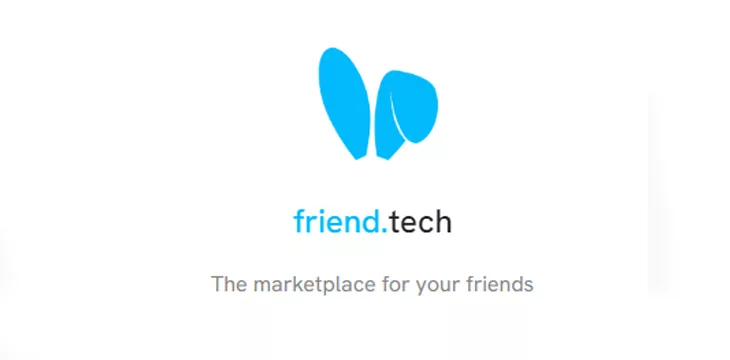
|
Getting your Trinity Audio player ready... |
Base, a layer 2 Ethereum blockchain, launched its mainnet on August 9, and the following day, friend.tech “the marketplace for your friends” launched to the public.
New users sign up with their X accounts, and once logged in, you can buy your first share of yourself for nearly free, only paying the transaction fee (which is cheap for now on the Layer 2 blockchain). Users can then buy other users’ shares, which trade on a bonding curve via an Automated Market Making (AMM) scheme. Instead of free market pricing, shares are printed upon purchase. The price is determined by a function of outstanding shares, supply, and demand.
More details on how the price model works can be found here.
However, you cannot access the site on a desktop computer browser, nor Google Play (NASDAQ: GOOGL), or Apple App Store (NASDAQ: AAPL). It is also inaccessible on a web browser on your mobile phone.
Instead, you must add the application to your home screen only on a smartphone and install it as a Progressive Web Application (PWA). PWAs are applications that have nearly identical behavior as those installed via the tech giants’ app stores, except implemented as a pure website, without the need to ask for permission or comply with arbitrary rulesets.
Even then, the only way to access it is via a referral code system, where each user gets three codes they can share. Despite this, the app had so much activity that it continuously crashed.
As such, on friend.tech, the idea is that you trade shares with digital currency, so likely the creators did not want to go through the arduous approval process or fork over a large chunk of their earnings if the Big Tech gatekeepers did indeed allow them through. Lastly, building a PWA allows developers to ship products much faster as there is one codebase developed in native HTML, CSS, and JavaScript, as just a website.
Despite this massive hurdle and the need to bridge real ETH to bridged ETH atop Base, the application somehow managed to onboard nearly 10,000 users on the first day. As of writing, the platform has amassed 20,000 users, and 6,600 ETH have been traded, where the creators earn 5%, netting them around 330 ETH (over $600,000).
Bots were already deployed to snipe new user accounts, detecting those over a certain number of followers and pushing the price up, speculating those types of influencers will be more popular, then to dump those shares after others buy-in. Of course, this model leads to popular criticism of this application, like many “crypto” apps, that it is just another Ponzi scheme. Be that as it may, it continues to demonstrate that the top use case of digital currency is indeed speculation, and if users believe they can spend to earn more, then they will jump through whatever hoops are required.
I can't believe I'm literally going to bridge to Base and join the friend tech ponzi
Buy my shares please, thanks in advance pic.twitter.com/PRpiLBl0xZ
— config.json (@config_json) August 12, 2023
Lastly, what will keep users active for at least seven days is the Airdrop tab. The first of these will take place weekly starting August 18 and may be related to trading activity and/or the referral codes used.
Friend.tech is the latest viral innovation in 2023, next to brc-20, sats.names, and bitmap. While it is uncertain if any of these have staying power, the fact is that the frequency of innovation and value captured is increasing. Despite the perception that digital currency is an overall bear market, we still see the most interesting creativity and organic adoption.
What’s next?
Watch: 1Sat Ordinals on Bitcoin

 11-22-2024
11-22-2024


